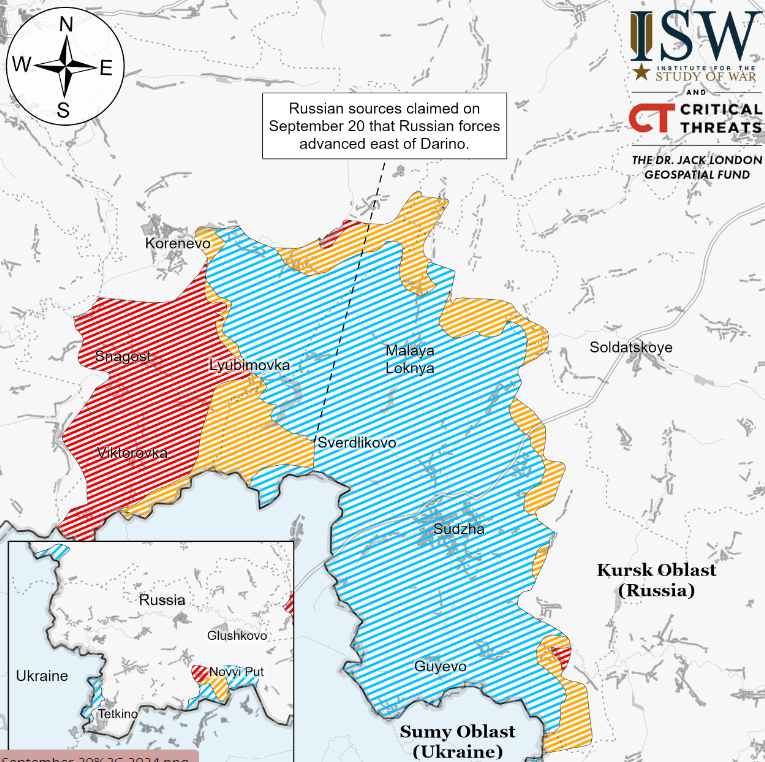Russian authorities failed to act on warnings before Ukrainian attack, documents show
Seized Russian documents reveal a pattern of ignored warnings and inadequate preparations in the months leading up to Ukraine's incursion into Kursk Oblast.


The Institute for the Study of War (ISW) reported on 21 September that Ukrainian forces achieved operational surprise during their incursion into Russia’s Kursk Oblast in August 2024, despite Russian authorities’ prior awareness of the possibility of such an attack.
Ukraine’s forces started its incursion into Russia’s Kursk Oblast on 6 August. President Volodymyr Zelenskyy said that these operations were intended to create a buffer zone to impede Russian military actions against Ukraine.
According to The Guardian, which cited Russian government and military documents seized by Ukrainian forces, Russian military units stationed in Kursk Oblast had been warning their command about a potential Ukrainian incursion since late 2023.
The Guardian reports that these documents, which they reviewed but could not independently verify, show that “local military commanders repeatedly ordered additional training exercises for Russian military personnel serving in Kursk Oblast, the construction of additional fortifications, and the preparation of decoy trenches and military equipment” in anticipation of a Ukrainian attack.
However, the ISW reports that Russian authorities appear to have failed to act on these warnings. The Guardian’s report indicates that as of June 2024, Russian units along the international border were understaffed and poorly trained.
One document reportedly stated that these units were “only staffed at between 60 and 70 percent of their intended end strength on average and were primarily staffed by poorly trained reservists.”
The ISW argues that this situation supports their assessment that “Ukrainian forces achieved operational surprise during the incursion into Kursk Oblast despite Russian authorities’ reported awareness of the possibility of an incursion.” They explain that surprise, in military terms, means to “attack the enemy in a time or place or in a manner for which he is unprepared.”
The report suggests that while Russian forces may have been aware of potential entry points along the border, “Ukrainian forces were able to leverage ambiguity around their operational intent and capabilities to maintain operational surprise.” The ISW also mentions that Ukrainian forces reportedly used innovative techniques combining ground activity and unmanned systems, though they do not provide details to protect Ukrainian operational security.
The ISW concludes that Ukraine’s campaign in Kursk Oblast “demonstrates that surprise is still possible even on a partially transparent battlefield where an adversary can observe force concentrations but not reliably discern an enemy’s operational intent and capabilities.”
Read also:
- ISW: Ukraine regains territory near Pokrovsk, Russians make marginal gains in several regions
- Ukraine neutralizes all 70 Russian Shaheds in nighttime attack; other strikes kill at least 2, injure 22 civilians
- Babbel extends free courses in three languages for Ukrainians
You could close this page. Or you could join our community and help us produce more materials like this.
We keep our reporting open and accessible to everyone because we believe in the power of free information. This is why our small, cost-effective team depends on the support of readers like you to bring deliver timely news, quality analysis, and on-the-ground reports about Russia's war against Ukraine and Ukraine's struggle to build a democratic society.
A little bit goes a long way: for as little as the cost of one cup of coffee a month, you can help build bridges between Ukraine and the rest of the world, plus become a co-creator and vote for topics we should cover next. Become a patron or see other ways to support.


